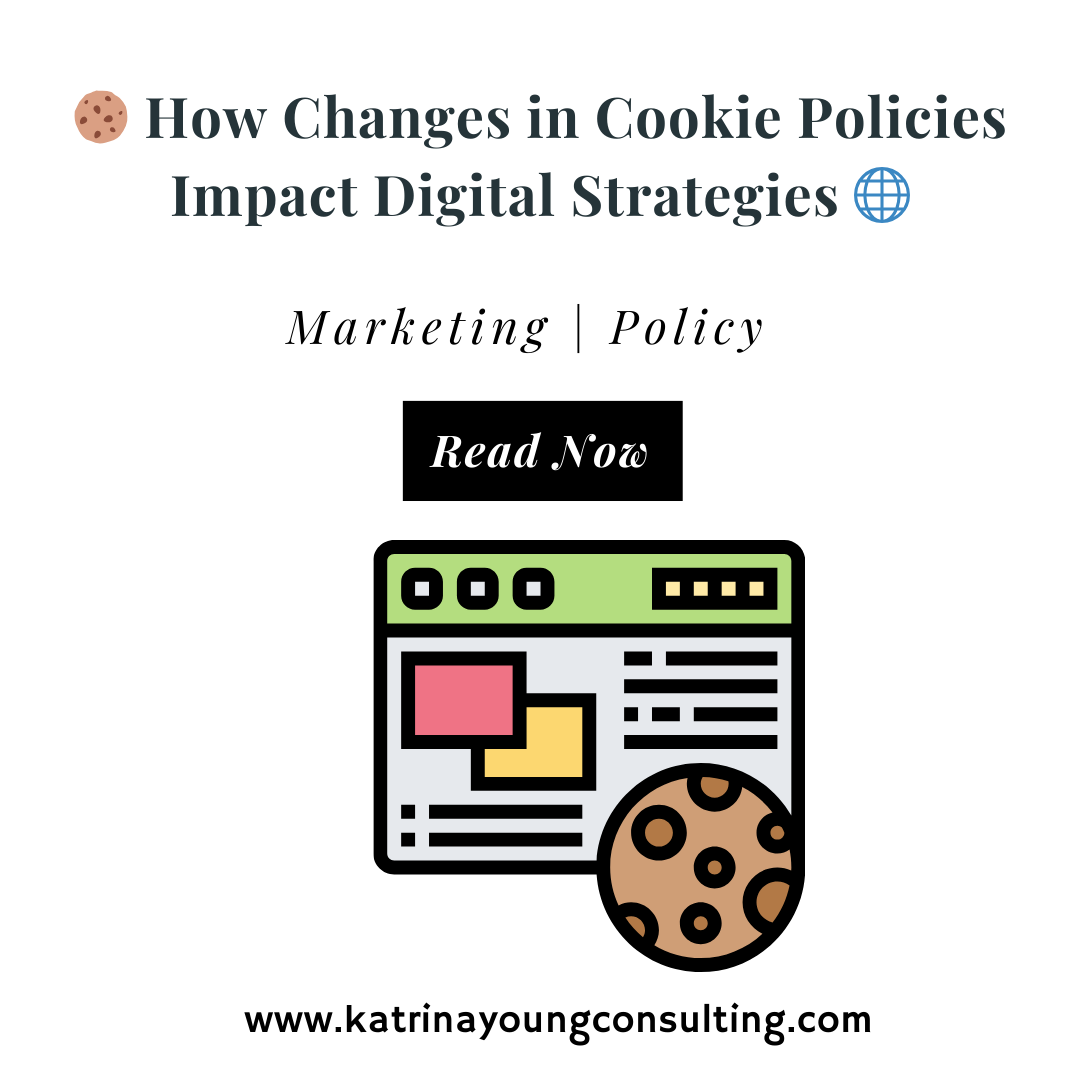🍪 Navigating the Shift: How Changes in Cookie Policies Impact Digital Strategies 🌐
🍪 Cookie Policy Impact Digital Strategies 🌐
In today's digital landscape, changes in cookie policies are sending ripples of transformation across all channels. From content creators and marketers to companies and advertisers, understanding the global impact of these shifts is crucial for staying ahead in the game. Let's delve into how these changes are reshaping strategies and what actions you can take to navigate this evolving terrain.
The Impact of Cookie Policy Changes 📉
1. Disruption in Targeted Advertising: With stricter regulations on cookies, targeted advertising is facing a significant disruption. Cookies have long been the cornerstone of digital marketing strategies, enabling businesses to deliver personalised ads based on user behaviour. However, with limitations on cookie tracking, advertisers are forced to rethink their targeting approaches.
2. Data Privacy Concerns: Heightened awareness of data privacy issues has prompted regulators worldwide to enact stricter policies governing the collection and use of user data. As a result, companies must prioritise transparency and consent when handling consumer information to comply with regulations such as GDPR and CCPA.
3. Shift in Analytics: Cookie policy changes also affect website analytics, making it challenging to track user behaviour accurately. This shift impacts businesses' ability to measure the effectiveness of their digital campaigns and optimise their strategies based on actionable insights.
Implications of Cookie Policy Changes 🤔
1. Enhanced Data Security: While cookie policy changes may pose challenges for marketers, they also offer an opportunity to enhance data security and protect user privacy. By adopting privacy-centric approaches to data collection and storage, businesses can build trust with their audience and differentiate themselves in a crowded market.
2. Evolving Consumer Expectations: As consumers become more aware of their digital footprint and privacy rights, their expectations regarding data protection and transparency are evolving. Brands that prioritise user privacy and offer opt-in consent options are more likely to resonate with today's conscientious consumers.
3. Shift in Marketing Strategies: In light of cookie policy changes, marketers are exploring alternative strategies to reach and engage their target audience. Contextual advertising, influencer partnerships, and content marketing are gaining traction as businesses seek to deliver relevant, value-driven experiences without relying on third-party data.
Crafting Your Action Plan 📋
1. Embrace First-Party Data: With third-party cookies becoming obsolete, prioritising first-party data is key to maintaining a personalised approach to marketing. Focus on building direct relationships with your audience through engagement strategies such as email marketing, loyalty programs, and interactive content.
2. Invest in Privacy-Compliant Technologies: Explore alternative technologies and tools that enable data collection while ensuring compliance with privacy regulations. Solutions such as privacy-focused analytics platforms and consent management tools can help you navigate the evolving regulatory landscape.
3. Diversify Your Digital Channels: Relying solely on cookie-based targeting is no longer sustainable. Diversify your digital channels and explore contextual advertising, influencer marketing, and social media engagement to reach your target audience effectively.
4. Educate Your Team: Ensure that your marketing and advertising teams are well-versed in the latest privacy regulations and industry best practices. Provide ongoing training and resources to empower them to make informed decisions and mitigate compliance risks.
5. Prioritise User Trust: Building and maintaining trust with your audience is paramount in the post-cookie era. Be transparent about your data practices, obtain explicit consent from users, and demonstrate a commitment to safeguarding their privacy rights.
🚀The changing landscape of cookie policies presents both challenges and opportunities for digital marketers and advertisers. By adapting your strategies to align with evolving privacy regulations and consumer expectations, you can not only ensure compliance but also build stronger, more meaningful connections with your audience. Embrace the shift, stay informed, and take proactive steps to future-proof your digital initiatives in a cookieless world.
Remember, the key to success lies in agility, innovation, and a steadfast commitment to putting user privacy and trust at the forefront of your digital strategy.
Need guidance on navigating the changing cookie landscape?
Book a consultation with us today!]
Disclaimer: The information provided in this blog is for educational purposes only and should not be construed as legal advice. Please consult with legal professionals to ensure compliance with applicable regulations.


